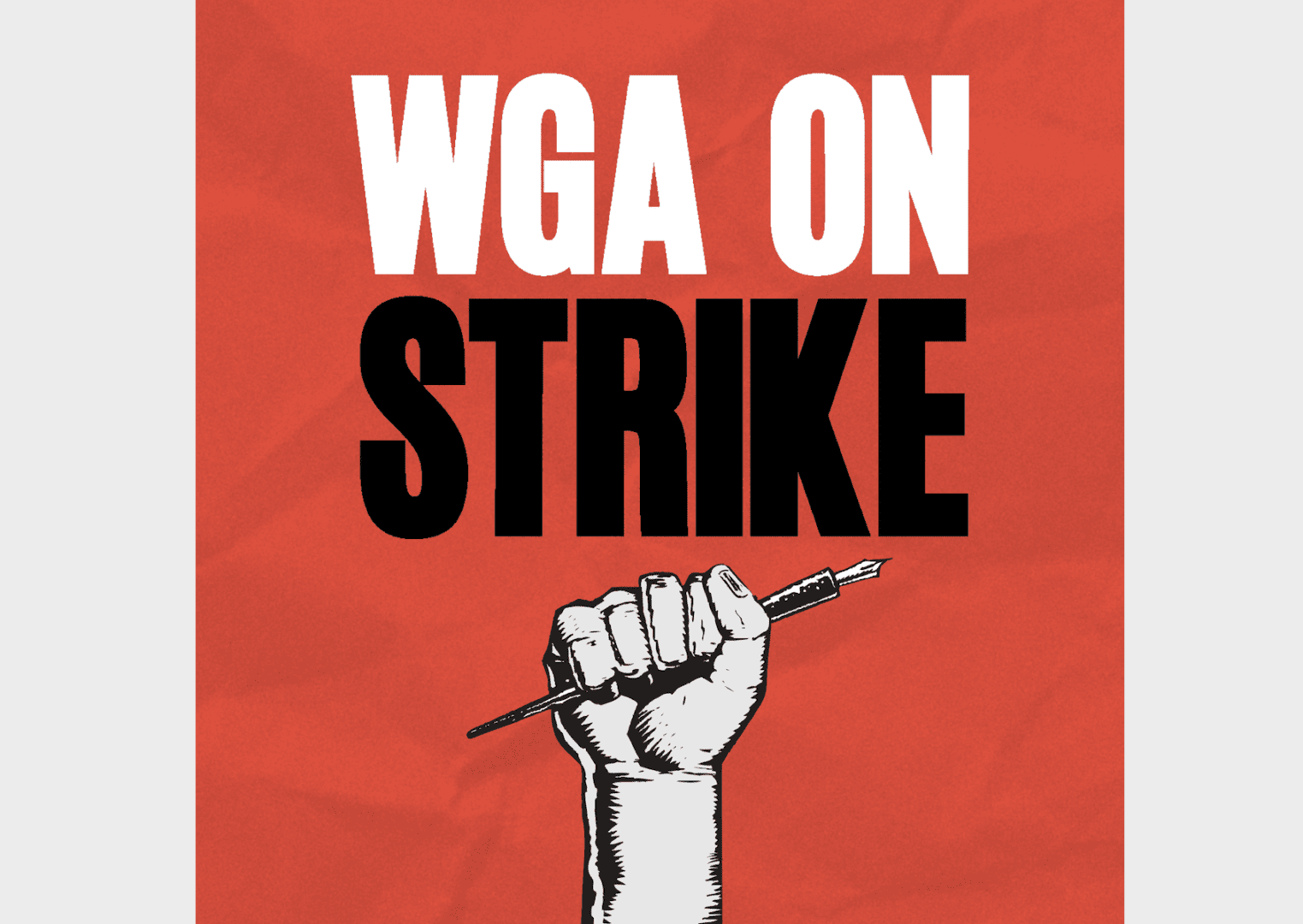 View Winners →
View Winners → Undaunted by morning rain, writers guild strike enters 3rd day

Despite the morning rain, members of the Writers Guild of America returned undaunted to picket lines outside most Hollywood studios Thursday, while the head of one of those studios — Paramount — told investors and reporters the company is prepared to weather an extended work stoppage.
Speaking on a company earnings call, Paramount Global CEO Bob Bakish said the company had been preparing for a WGA walkout and believes viewers won’t see any major impact “for a while.”
“Writers are an essential part of creating content that our audiences enjoy, really across platforms,” Bakish said. “And we hope we can come to a resolution that works for everyone fairly quickly. But it’s also fair to say there’s a pretty big gap today.
“Obviously, we’ve been planning for this. We do have many levers to pull and that’ll allow us to manage through this strike, even if it’s for an extended duration. In terms of those levers, we have a lot of so-to-speak content in the can. So with the exception of things like late-night, consumers won’t really notice anything for awhile.”
He said the studio also has a wealth of “reality and unscripted” content, as well as sports programming.
“Plus we have offshore production, which we’ve been moving to leverage pre-strike,” he said.
Bakish’s comments came as striking WGA members returned to picket lines for a third day Thursday. Outside Paramount Studios in Hollywood, one of those strikers acknowledged Bakish’s take on the strike, but noted additional pressure will fall on the studios when labor talks begin in the coming weeks with the Directors Guild of America and SAG-AFTRA actors’ unions.
“At a certain point they will run out of content,” writer/producer Peter Paige told KNX News outside Paramount Studios. “At a certain point there will be no more content. We’ve got the DGA negotiations coming up shortly and SAG follows right after that. And we’re all facing the same existential issues, where it’s no longer possible to make a living, a decent living … in this business. So something’s got to give.”
Smaller numbers of picketers were seen outside many of the studios Thursday, although the pickets were expected to continue throughout the day, meaning union members planned to march in two shifts through 5 p.m.
Outside Disney studios in Burbank, about a dozen picketers braved the rain Thursday morning to continue their picketing.
There was no word of any new labor talks scheduled between the WGA and the Alliance of Motion Picture and Television Producers, which represents the studios. The strike, which began Tuesday morning, has halted television and other productions on both coasts
The picketing is being conducted at Amazon’s Studio in Culver City, CBS’ Studio City lot, Television City, The Walt Disney Co.’s corporate headquarters in Burbank, the Fox Studios lot, Netflix’s Hollywood headquarters, Paramount Studios in Hollywood, Sony Studios in Culver City, Universal Studios and Warner Bros. in Burbank.
The union remains at an impasse with Hollywood studios over a host of labor issues — most notably, residuals for streaming content, staffing levels in writing rooms and the use of artificial intelligence. The strike is the first by the WGA in 15 years.
“Though we negotiated intent on making a fair deal — and though your strike vote gave us the leverage to make some gains — the studios’ responses to our proposals have been wholly insufficient, given the existential crisis writers are facing,” the union wrote in a message to its membership Monday.
The strike is also expected to have a wide-ranging economic ripple effect on thousands of crew members and other behind-the-scenes workers — as well as impact businesses near studios such as restaurants that typically serve workers.
The WGA is specifically calling for higher residual pay for streaming programs that have higher viewership, rather than the existing model that pays a standard rate regardless of a show’s success.
The union is also calling for industry standards on the number of writers assigned to each show, increases in foreign streaming residuals and regulations preventing the use of artificial intelligence technology to write or rewrite any literary material.
According to the union, its latest contract proposal would net writers roughly $429 million per year, while the studios’ latest offer would equate to about $86 million annually.
Studios have pushed back on some union demands, noting that the entire industry is facing budget constraints, and pointing to the thousands of layoffs currently underway at the Walt Disney Co. as a prime example. The studios also say writers’ residuals have increased in recent years, powered largely by amounts earned through “new media.”
The AMPTP issued a statement Monday saying, “The AMPTP presented a comprehensive package proposal to the guild last night which included generous increases in compensation for writers as well as improvements in streaming residuals.
“The AMPTP also indicated to the WGA that it is prepared to improve that offer, but was unwilling to do so because of the magnitude of other proposals still on the table that the guild continues to insist upon. The primary sticking points are mandatory staffing and duration of employment, guild proposals that would require a company to staff a show with a certain number of writers for a specified period of time, whether needed or not.
“The AMPTP member companies remain united in their desire to reach a deal that is mutually beneficial to writers and the health and longevity of the industry, and to avoid hardship to the thousands of employees who depend upon the industry for their livelihoods. The AMPTP is willing to engage in discussions with the WGA in an effort to break this logjam.”
The WGA last week issued what it calls “strike rules,” which bar union members from doing any writing for studios being struck, or conducting any negotiations on future writing projects. The rules also direct union members to honor all WGA picket lines, perform assigned “strike-support” duties and inform the union of any “strikebreaking activity.”
The WGA last went on strike in 2007-08, remaining off the job for 100 days and grinding Hollywood production to a halt. That strike was precipitated over compensation for what was then termed “new media,” with Internet streaming beginning to reshape the entertainment landscape.
Various estimates from different organizations estimated that the 100-day strike cost the local economy between $2 billion and $3 billion.









































































































